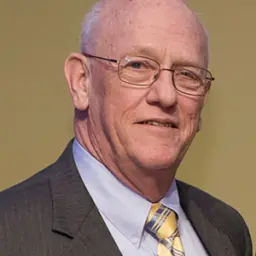When the technical team in the Center for Health Enhancement Systems Studies at the University of Wisconsin-Madison College of Engineering builds out a new app or computer interface to support healthcare patients and gather valuable research data, the typical development time is around six months.
 Dave Gustafson Jr.
Dave Gustafson Jr.
But when posed with the challenge of creating an app and desktop website to provide social support, timely resources and accurate information specifically catered to Wisconsin residents regarding the COVID-19 pandemic, the group only had a little more than a month.
“You pretty much wake up and just go,” says Dave Gustafson Jr., information technology director for the center, which is known as CHESS. “It’s been pretty intense.”
The desktop platform, called COVID-19 Wisconsin Connect, launched May 4, 2020, and the CHESS team expects mobile apps for Apple and Android systems to be approved for download by mid-May. The project is the product of a collaborative effort between healthcare systems engineers, writers and technical staff from CHESS, communications researchers and students from the Center for Communication and Civic Renewal at the School of Journalism and Mass Communication, wellness experts at Healthy Minds Innovations, and medical personnel from the Wisconsin Department of Health Services (DHS).
It spawned from a request to CHESS founder and director Dave Gustafson Sr., professor emeritus of industrial and systems engineering, by Ryan Westergaard, chief medical officer and state epidemiologist for communicable diseases for DHS and a principal investigator with CHESS. Westergaard saw a need for a system that could offer social support and reliable information while informing decision-making for Wisconsin residents.
 Dave Gustafson Sr.
Dave Gustafson Sr.
With guidance from Gustafson Sr. and longtime collaborator Marie-Louise Mares, a professor of communication arts, the CHESS technical team—Gustafson Jr., lead software developer Adam Maus, front-end developer Katie Wright, software developer Hannah Lehr and lead technologist Matthew Wright—started work in early April, even before funding from the Wisconsin Partnership Program at the UW School of Medicine and Public Health officially arrived and while still balancing commitments on six other research projects.
The developers drew heavily from two previous CHESS creations: A-CHESS, a mobile app for preventing relapse after alcohol treatment, and Elder Tree, a desktop-based support system for older adults living independently. To create a platform that could function as both a native app on mobile and a website on computers, the group used a content management system built by Maus in 2016 along with the app development platform Ionic, created by UW-Madison alumni.
Meanwhile, CHESS writers Darcie Johnston and Judy Woodburn developed content and the team at School of Journalism and Mass Communication applied its work tracking misinformation on social media channels. Those efforts, along with continued technical refinement, will be ongoing to reflect the latest information around the pandemic in the state.
COVID-19 Wisconsin Connect includes guidance on symptoms, testing and quarantining, a fact checker, prevention techniques, meditations for calming the mind, discussions rooms and more resources. In the first four days after the system’s launch, it drew more than 8,000 users.
Gustafson Sr. says the app’s structure and content follows a model for supporting healthy behavior by fostering social support, kindling intrinsic motivation, providing coping strategies and resources, and disseminating accurate, updated information.
Over the past three decades, CHESS has applied a similar formula to help patients with a range of conditions, including multiple types of cancer, HIV and AIDS, asthma and substance abuse. Typically, though, the center’s platforms support research studies with a small base of study participants.
As an app targeted to all Wisconsinites—and with a statewide marketing campaign, led by the School of Journalism and Mass Communication team, behind it—COVID-19 Wisconsin Connect is a considerable departure. And it’s an opportunity for CHESS technology to help the whole state.
“It’s been one of the most important experiences I’ve ever been involved with in my whole life,” says Gustafson Sr.